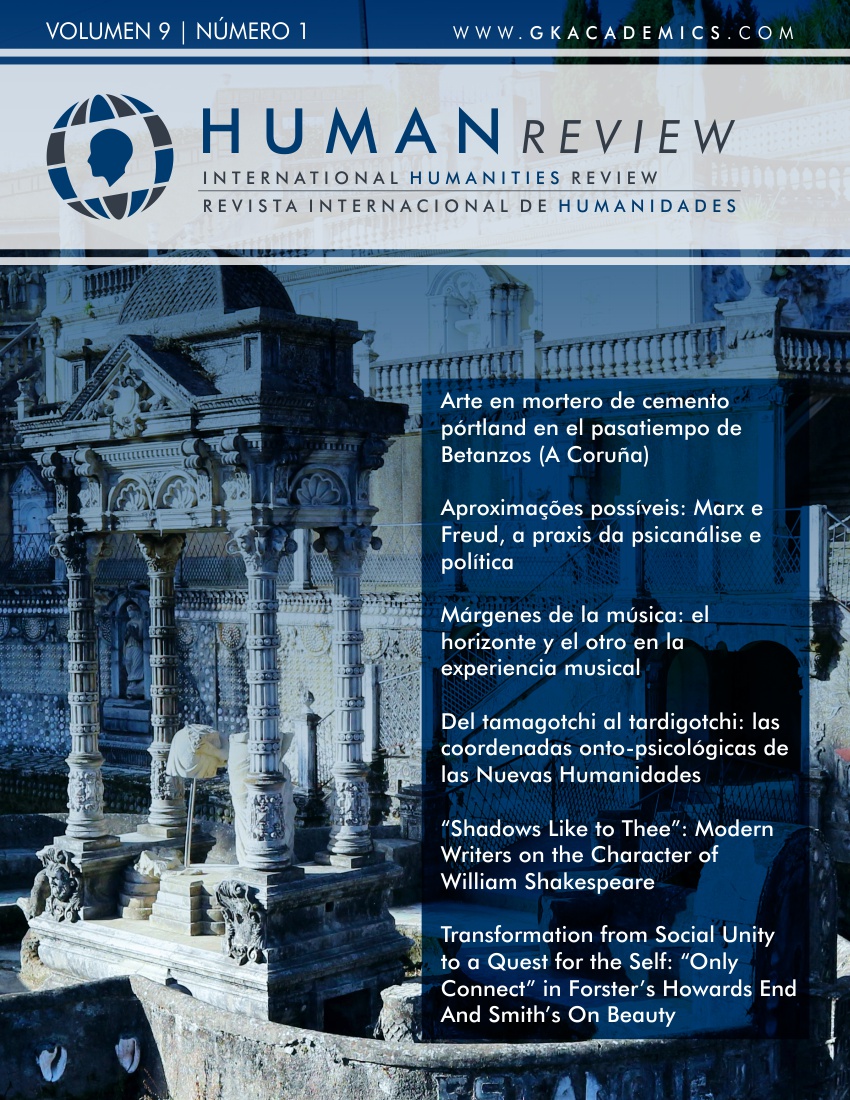Transformation from Social Unity to a Quest for the Self: “Only Connect” In Forster’s Howards End And Smith’s On Beauty
Keywords:
E. M. Forster, Howards End, Zadie Smith, On Beauty, Connection, IdentityAbstract
As the epitome of his humanistic view of life, E. M. Forster’s motto “only connect” is best represented by Howards End. Henry Wilcox’s and Margaret’s indifference and distanced approach to Leonard’s demand for employment because of his lower status, Helen’s failed efforts for the appreciation of the lower strata in the case of the Bast family and Leonard Bast’s acceptance of his inferiority to the Wilcoxes embody Forster’s anxieties regarding the “connection” among different social classes. However, contemporary man’s quest for a new self within the dynamism of the contemporary world despite the realisation of Forster’s emphasis on “connection” in the contemporary context is epitomised in Zadie Smith’s On Beauty. In the novel, Howard’s efforts for a new self by his affair with Victoria and his failure in returning to his family bonds indicate that Forster’s emphasis on “connection” among people turns into a quest for a new self in contemporary circumstances.
References
Beyer, Peter. 1994. Religion and Globalisation. London: Sage.
Day, George S. and David A. Aaker. 1970. “A Guide to Consumerism”. Journal of Marketing34 (3): 12-19. 17.04.2019. https://www.jstor.org/stable/1249814.
Forster, E. M. 1951. “The Challenge of Our Time”. In Two Cheers for Democracy. London: Edward Arnold.
Forster, E. M. (1910) 2012. Howards End. London: Penguin English Library.
Forster, E. M. 2008. “Incidents of War”. In The Creator as Critic and Other Writings by E.M. Forster, edited by Jeffrey M. Heath, 188-197. Toronto: Dundurn Press.
Forster, E. M. 2008. “I Speak for Myself”. In The Creator as Critic and Other Writings by E. M. Forster, edited by Jeffrey M. Heath, 310-312. Toronto: Dundurn Press.
Forster, E. M. 2008. “Modern Writing”. In The Creator as Critic and Other Writings by E. M. Forster, edited by Jeffrey M. Heath, 120-124. Toronto: Dundurn Press.
Forster, E. M. (1924) 1979. A Passage to India. Edited by Oliver Stallybrass. London: Penguin.
Forster, E. M. 1951. “Tolerance”. In Two Cheers for Democracy. London: Edward Arnold.
McGrew, Anthony. 1992. “A Global Society?” In Modernity and Its Futures, edited by Stuart Hall, David Held and Tony McGrew, 61-116. Cambridge: Polity Press.
Papastergiadis, Nikos. 2000. The Turbulence of Migration: Globalisation, Deterritorialisation and Hybridity. Cambridge: Polity Press.
Penguin Random House. 2017. Zadie Smith: ‘Adult friendships seem hopelessly diluted’. Penguin Features, July 27. 17.04.2019. https://www.penguin.co.uk/articles/in-conversation/interviews/2017/jul/zadie-smith-on-swing-time-friendship.
Pinkerton, Mary. 1985. “Ambiguous Connections: Leonard Bast’s Role in Howards End.” Twentieth Century Literature 31(2-3): 236-246. 17.04.2019. https://www.jstor.org/stable/441293.
Rushdie, Salman. 2015. Two Years, Eight Months and Twenty-Eight Nights. London: Jonathan Cape.
Shirkhani, Kim. 2008. “The Economy of Recognition in Howards End.” Twentieth Century Literature 54(2): 193-216. 17.04.2019. https://www.jstor.org/stable/20479848
Sicher, Effraim and Linda Weinhouse. 2012. Under Postcolonial Eyes: Figuring the ‘Jew’ in British Writing. Nebraska: University of Nebraska Press.
Smith, Zadie. 2012. NW. London: Penguin Books.
Smith, Zadie. 2005. On Beauty. London: Penguin Books.
Thomson, Douglas H. 1983. “From Words to Things: Margaret’s Progress in Howards End.” Studies in the Novel 15(2): 122-134. 17.04.2019. https://www.jstor.org/stable/29532211.
Williams, Melanie. 2006. “Only Connect: Howards End and the Theories of Justice.” Law and Literature 18 (2): 253-280. 17.04.2019. https://www.jstor.org/stable/10.1525/lal.2006.18.2.253.
Zadie Smith: ‘I Have a very Messy and Chaotic Mind’. January 21, 2018. The Guardian. https://www.theguardian.com/books/2018/jan/21/zadie-smith-you-ask-the-questions-self-doubt.
Published
Issue
Section
License
All articles are published under an Attribution-NoDerivatives 4.0 International (CC BY-ND 4.0) license. Authors retain copyright over their work.

